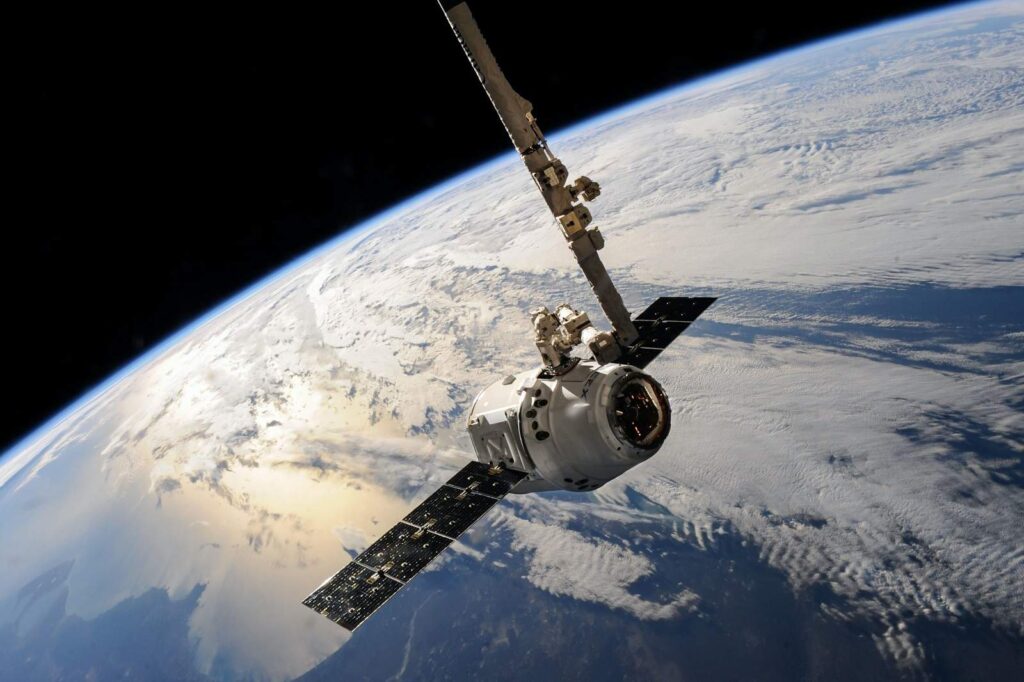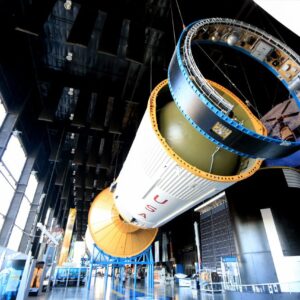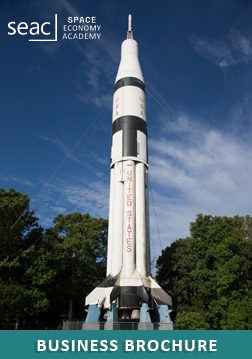Space Economy is growing and evolving, together with the development and profound transformation of the space industry and the further integration of space into society and economy.
The global space economy was valued at about $447 billion in 2020, 55% higher than a decade ago, according to The Space Report 2021 Q2. This is truly astronomical growth and made possible because the new space economy is finally connecting to the larger economy.
The “old” space industry was centralized, national, and bureaucratic. It was limited to state-run programs with limited numbers of public-private partnerships. The government’s push to outsource space activities not considered core to its mission brought on a mega-trend for the industry — commercialization. This trend is behind the transformation in the space economy.
The New Economy in Space is global, entrepreneurial, and accessible. It is increasingly diversified and expanding with private players across a variety of sub-sectors.
What are the top 8 drivers in Space Economy?
The space economy is a fast-growing industry focus on: Orbital Debris, mining, Satellite, Internet, Technology, Securtity, and Space tourism
1- A Growing Relationship between Space and Climate Change
The relationship between space and climate change is growing. Satellite technology provides crucial data for monitoring , atmospheric composition, and the impacts of climate change on Earth. The insights gained from space-based observations contribute to informed decision-making and effective climate change mitigation strategies.
Satellite technology has become integral in the study of climate change, providing valuable data on global climate patterns. These space-based observations contribute to informed decision-making to address and mitigate climate change.
The space sector has witnessed a significant increase in capital formation, attracting robust investments from various sources. Private investors, venture capital firms, and government initiatives are fueling this capital influx, recognizing the immense potential of space technology and exploration. The growing interest is driven by the, satellite deployment, asteroid mining, and the emergence of new space companies.
This increased capital formation is expected to drive innovation, accelerate technological advancements, and unlock new opportunities in the rapidly expanding space industry.
3- Mitigating Orbital Debris- As space becomes more congested, the threat of “space junk”
Mitigating orbital debris is a critical concern for the space economy. Efforts are underway to address this challenge through various approaches. Firstly, satellite operators are adopting responsible practices, including deorbiting
satellites at the end of their missions to ensure their controlled reentry. Secondly, active debris removal missions are being developed to capture and remove large debris objects from orbit.
Additionally, improved tracking and collision avoidance systems are being implemented to minimize the risk of satellite collisions. International collaboration and regulatory frameworks are also being established to promote responsible space operations and debris mitigation.
These collective efforts aim to safeguard the long-term sustainability of space activities and minimize the proliferation of orbital debris.
4- Space and Security
Space plays a crucial role in security, encompassing both defense and civilian aspects. The space economy relies on secure and resilient satellite systems for communication, navigation, and surveillance. However, space assets are vulnerable to threats such as space debris, cyberattacks, and anti-satellite weapons. Safeguarding the space domain requires international cooperation, investment in advanced technologies, and the development of norms and regulations.
By ensuring the security of space assets, we can protect the space economy and enable continued exploration, innovation, and socio-economic benefits.
5- Satellite Internet
Satellite
internet is revolutionizing connectivity worldwide, providing access to underserved areas and remote regions. It has become a key driver in the space economy, fueling innovation and economic growth. Satellites in low Earth orbit
(LEO) constellations, such as SpaceX’s Starlink, offer high-speed broadband internet to users around the globe.
This transformative technology has the potential to bridge the digital divide and spur socio-economic development.
However, challenges remain, including orbital congestion and regulatory frameworks. Addressing these issues will be crucial to maximize the potential of satellite internet and ensure its sustainable integration into the growing
space economy.

6- Asteroid Mining
Asteroid
mining has the potential to reshape the space economy by unlocking vast resources beyond Earth. The extraction of valuable minerals and water from asteroids could fuel future space industries and support long-duration missions. However, the economic viability of asteroid mining hinges on technological advancements, cost-effective methods, and the establishment of robust space economic frameworks.
7- Space Tourism
Space tourism is a burgeoning industry that offers a remarkable opportunity for individuals to experience space travel. Companies like Virgin Galactic and Blue Origin are paving the way for suborbital spaceflights, allowing tourists to venture beyond Earth’s atmosphere. This emerging sector holds the potential to revolutionize the way we perceive space and foster a new era of exploration and adventure
8- Space Research
Research groups are dedicated to exploration of space and space technology.
For a long time, companies in this industry tried to capture the market by selling satellite, data or the technology, and customers understandably could not connect this to their need. Today, more and more providers in the industry are realizing that it’s not about the data or technology, rather it’s about meeting the customer where they are and offering answers.
The increased capital is leading to more players bringing more technologies to the space economy environment.
All of this translates to lower costs, reduced barriers to entry, shortened timelines for launches, and more customer-centric offerings. This means that the New Space economy is the Old Space economy perfecting.
Perfect markets have connections to the larger economy and are therefore naturally more resilient. For example, Amazon Web Services (AWS Aerospace and Satellite) and Microsoft (Azure Space) can validate that this value chain is prized.
Space economy is by no means a perfect market but definitely more perfect than it was 20 years ago — driving innovation and encouraging new areas of investment leading to a prized value chain. Thus, transforming business landscape in the space industry.




